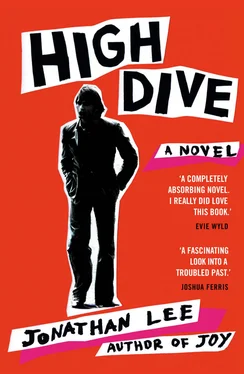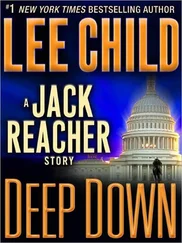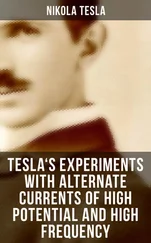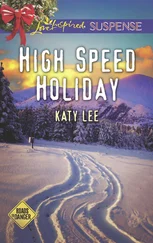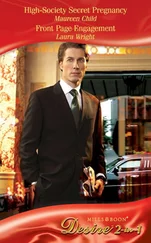Sleeplessness. It seemed such a conventional response in the aftermath of an operation, and he wasn’t even in the aftermath. The device hadn’t yet entered the public phase of its life. Headlines, consequences. Normal rules didn’t apply. The Larne — Stranraer ferry project had been long in the planning but quick in its own enactment. The pub attack on UDR officers had been over in less than an hour. The timer for the Hyde Park bombing was set short, simple engineering. Would it be found? Would it be damaged? Had he fucked it up? Had Patrick fucked it up? No contact from Dawson. Threat letters still coming. Last night he’d woken from thin, uneasy dreams featuring fishermen dragged into dark water, radios playing birdsong backwards, an animal hidden in his bedside cabinet tap-tap-tapping to get out. Sleeplessness led to fatigue. Fatigue to mistakes. A very simple equation. He’d increased his intake of spirits to smooth the edges off his thoughts, but the desired soft-warm haze rarely descended. The side effects, the headache, the dry mouth, the ruined concentration — all of this worked very well. It was just the drunkenness that wasn’t happening.
As he walked past a stray dog peeing on a lamp post now he briefly imagined himself back into the Grand Hotel, looking out the window, thinking there was something bland about the English sea and sky most of the time, something huge and dramatic but disappointing, blank and grey and everyday. The prow of a ship unmoving, September’s clouds falling into water, September’s water rippling into clouds, grimy foam flickering on the tops of waves. The word ‘seaside’, with its colourful sing-song, seemed to him to be a kind of false advertising. What he loved was grassland, shrubs. A sentimental preference for green. The dog limped away from the lamp post, looking only slightly ashamed.
The afternoon he sat on the bathroom floor with Patrick. The shine of the lino. Fluorescence riding the curves of the bath. With the timer device prepared you began to peel the wax paper from the slab of Semtex. You got lost in its specks and dents, its deep orange hue. Made him think of a particular cheese his uncle used to buy from Lowry’s.
The wrapper had been halfway off when Patrick said, ‘No.’
‘ No? ’
‘An alternative.’
Went into the bedroom, came back with an open bag.
‘Gelignite?’
Patrick nodded.
‘Why?’
‘Options. Play the percentages.’
He said it was fresh from Enfield, County Meath. Twenty pounds. Top drawer. Mines and quarries. Mr Nobel’s invention. A refinement on dynamite, it was. Did you know that, Dan? A nice touch, no? We’ll get the peace prize, with this. Or some fucker will, anyway. Some Labour Party grinner who gets in after Thatcher, sealing a suitable deal.
The memories were fine most of the time. You let them linger at the outer edges of your senses. What was unendurable were the doubts, the effort involved in not listening to them.
Some of the Union Jacks further up the road were wired to guttering or pipes. Others were more crudely secured, taped to window ledges or fencing. He passed a row of four or five homes that held other flags: the red-and-white Ulster banner, its central red hand steady under a crown. The banners had been up since July. Normally they would have been taken down by now. A sign from the Loyalists, clear and simple — danger for Republicans passing through. Someone ought to climb up and burn them, burn all of them, including the flag he passed under now which bore, for some reason he wasn’t able to fathom, a left hand, thumb open. If he ever moved away it would be his last act: he’d burn them. He glanced sideways at the house with the Land Rover. Behind the latticework of wire across the Rover’s windscreen he could make out the sea-green of a bulletproof bib.
He should have taken the dogs on this walk. He tried to walk them twice a day but lately it was once.
The post office was boarded up. Finally, on his advice, they were replacing the window grille with proper bulletproof panes. The place had been done over twice in ’83 and twice again this year, easy money because the owners were elderly. IRA Youth were involved. He knew this to be true. Dawson had never got back to him.
Faster, faster, past the police station with its pillared entrance and barred windows, a huge shadow-casting mass. The size of a concert hall, it was. A hundred mysterious performances going on inside. The library came into view and he slowed down to study new graffiti. The Loyalists were crude in their artistic efforts: jagged lines and shaky brushwork. No comparison with the detailed portraits of Republican legends, vast works on walls that flanked the Shankill Road. These murals were always at risk of redaction, black paint erasing Bobby Sands until a new portrait was formed, but with each revision the dead heroes had their appearance upgraded, a Chinese whisper of improving jawlines and eyes.
He remembered walking on Brighton Beach that first evening, the night they’d said he shouldn’t leave his room. The walk had been uneventful but it had returned to him a sense of power in reserve, something bone-deep saved up for later. It had created, briefly, a double illusion of choice: the choice of the walk itself and the choice of whether ever to speak of it.
Before reaching the library, before finding a book that contained a lean chapter on knotweed, before punching wood-panelling in the dusty stacks for no good reason at all — before all of this he saw a man of Dawson’s height and build in the street, wrapped in a mouse-coloured coat. He briefly believed it was him.
Japanese knotweed is a frequent coloniser of temperate riparian ecosystems, dirt tracks, roadsides and waste places.
He sat in the library. He was reluctant to accept that his garden was a waste place. Maybe it was a temperate riparian ecosystem? He wasn’t sure. The author, Jeremy P. Humphreys, didn’t linger on definitions. How could someone write a book like this and come out of it alive?
As he flicked through pages in the library book he felt increasingly lost, a person lacking in traction. This was not a place that welcomed men like him. Would it go off? Did he want it to go off? His mother’s haggard face. The blotchy wooden spatula that made everything taste of onion. The unfixed tap in the bathroom, the leak of unwanted thoughts. His mind seemed intent on dealing with every single thing except the text in front of him.
Everything in the library was brown. The curtains, the carpets, the desk, the library cards. The trousers of the old men who refused to speak in whispers. Everything except the librarian. He was grateful for her freckles, for her shiny apple face, for her green sweater and frizzy burnt-orange hair lifting just a little joy from the dog-eared drabness of the place. The ceiling was high but there was a lack of natural light. The largest window was behind her, the size of the road atlas he kept in the van, and the putty around the frame had cracked. Her nose was dotted with tiny pinhole pores. They made him think of sand and creatures burrowing. Day trips, too. Trips to the Belfast Lough, his father and him, his mother back home cooking. The cold weight of Dad’s binoculars on the bridge of the nose, the swirl of mudflats, the gleam of lagoons. The outer lough was rocky shore flecked with sandy bay. Long, wide, deep, calm; our gateway to the Irish Sea. The tides there were weak but noticeable. The moon pulls the water towards it.
He didn’t talk to the librarian much. That, he would later think, was a shame. It might have been useful, maybe even instructive, to understand how she came to be here.
ON THE NIGHT before the big drinks event, Surfer John finally called.
Читать дальше
